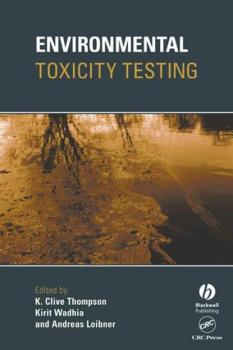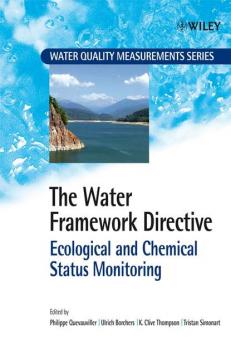ТОП просматриваемых книг сайта:
Clive Thompson
Список книг автора Clive ThompsonАннотация
As an integral component of environmental policy, it has become essential to regulate and monitor toxic substances. Past emphasis has been primarily on analytical approaches to the detection of specific, targeted contaminants, thus allowing chemical characterisation. However, toxicity testing or biological assessment is necessary for ecotoxicological evaluation, and this offers marked benefits and advantages that complement chemical analysis. Key issues to be addressed include identification of pertinent tests, reproducibility and robustness of these tests, and cost considerations.This book examines these issues and describes and explains the approaches that have been developed for environmental toxicity evaluations. Advantages, benefits and drawbacks of the strategies and methods are highlighted. Directed equally at ecotoxicologists, industrial chemists, analytical chemists and environmental consultants, this book is written in a way that will prove helpful to both new and experienced practitioners.
Аннотация
Deals with new EC legislation – the Water Framework Directive; the main driver within Europe for groundwater monitoring which addresses integrated water resource management across 27 different countries Provides comprehensive approach and guidance on the theoretical and practical aspects for implementing the directive Edited by EC representatives involved in the setting up of the framework, along with colleagues in various water institutions who have the task of implementing the legislation Part of the Water Quality Measurement Series
Аннотация
Drinking water policies and research are intimately linked. It is thanks to the scientific progress made over the last 25 years in identifying and controlling toxic products in drinking water that regulations have developed in such a way that the protection of public health from waterborne diseases has drastically improved. The integration of research outputs into the policy-making progress requires close cooperation among the scientific and policy communities, which is not always straightforward. Exchanges among scientific and policy-making communities are certainly representing key elements of progress for a better environmental protection. In this respect, analytical developments linked to drinking water are at the core of the science-policy debate. This book «Analytical Methods for Drinking Water: Advances in Sampling and Analysis» reflects this awareness in joining recent analytical developments with policy considerations. A first chapter gives an overview of EU and US drinking water policies, as well as on standardization. Analytical developments are described in depth in the second chapter, focusing on bromate in drinking water. The third chapter deals with the development of a sampling protocol for lead in drinking water, thus mixing analytical development with standardization needs. Finally, the fourth chapter focuses on standardization aspects (pre-normative research) related to materials in contact with drinking water. This book, written by experts in the field of drinking water policy and analysis, illustrates recent scientific advances in this area, which have contributed to policy development and will be of direct use to policy-makers, water scientists, researchers and analytical laboratories.
Аннотация
A brilliant examination into how the internet is profoundly changing the way we think.In this groundbreaking book, Wired writer Clive Thompson argues that the internet is boosting our brainpower, encouraging new ways of thinking, and making us more not less intelligent as is so often claimed.Our lives have been changed utterly and irrevocably by the rise of the internet and it is only now that we can begin to analyse this extraordinary phenomenon. The author argues that as we rely more and more for machines to help us think, our thinking itself is becoming richer and more complex. We’re able to learn more, retain it longer, to write in curious new forms, and even to think entirely new types of thoughts.Outsmart is filled with stories of people who are living through these profound technological changes. In a series of postcards from the near future, we meet characters such as Gordon Bell, an ageing millionaire who is saving a digital copy of everything that happens to him, and Eric Hovitz, one of the world’s leading artificial-intelligence researchers, who is creating software that is designed to let your computer sense your mood and then predict when you’re going to be most productive at work.Lucidly written and argued, Outsmart is a breathtaking original look at our Brave New World.






